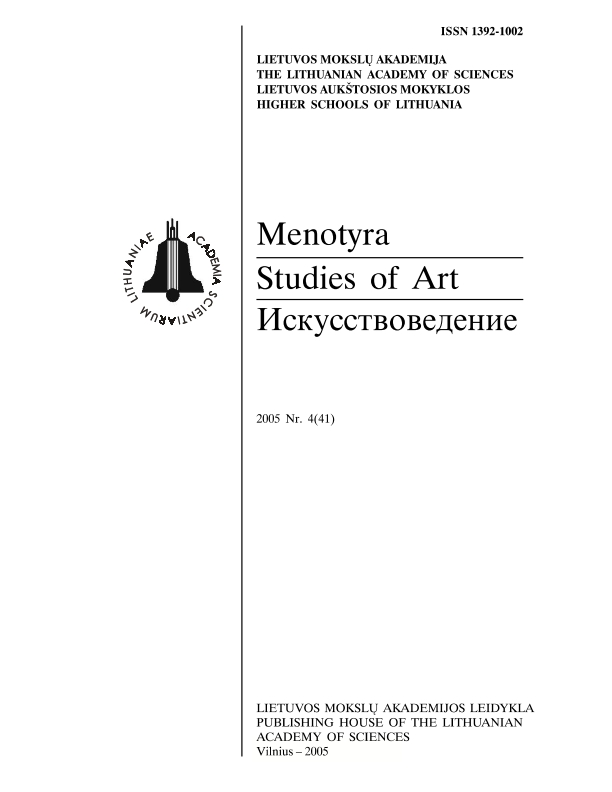Lietuvių istorinės dramos pradžia: lenkiškos ištakos ir lietuviškos korekcijos
The beginnings of Lithuanian historic drama: Polish origins and Lithuanian modifications
Author(s): Šarūnė TrinkūnaitėSubject(s): Theatre, Dance, Performing Arts, Cultural history, Lithuanian Literature, Drama
Published by: Lietuvos mokslų akademijos leidykla
Summary/Abstract: In many cases, Lithuanian historical dramaturgy in the end of the 19th and the beginning of the 20th centuries absorbed Polish romanticism's Lithuanistic thematic and modified it according to the ideology of endless national pride, which was formed during the years of the uprising. The dramaturgy adapted and completely changed the not-so-positive perception of the Lithuanian, Lithuania, and its history, which was found in Polish literature. Instead of viewing Lithuania as a nostalgic, memorable concept, as suggested by Polish romantics, it adapted the pathetic persuasions regarding Lithuania's joyful future. The image of the Lithuanian suffering from dramatic desires and far from becoming a civilized European was replaced by a brave, noble, and civilized knight impressing Europe with its physical and spiritual powers. In this way Lithuanian historic drama quasi embodied the Lithuanian society's unreal dream of that time, which was to become a full-fledged European nation. Yet it inevitably gained a rather primitive, plain, dramatization character, based on reckless requisitions of Lithuanian heroism and not possessing any complex inner experiences. On the other hand, this historic drama, pinned with poses of ancient heroic knights, became a therapeutic means to calm the feelings of inadequacy and strengthen the spirit in the Lithuanian community, which began to form in the not very hospitable Vilnius in the beginning of the 20th century and was constantly abused by foreigners. Yet this project of a heroic Lithuania, created in the historic drama, did not prove effective. The Lithuanian amateur stage of the past did not possess enough creative potential to implement this seemingly primitive idea, and so it simply profaned, caricaturized, and made a circus out of the glorious and valiant image of Lithuania by diligently composed playwrights.
Journal: Menotyra
- Issue Year: 2005
- Issue No: 4(41)
- Page Range: 41-45
- Page Count: 5
- Language: Lithuanian

